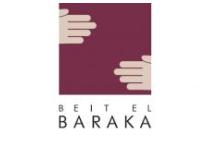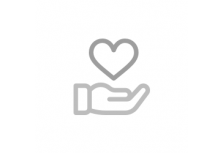Beit el Baraka offers a program that assists a large number of Lebanese families in strong financial distress, and retirees who often suffer from seclusion and lack of access to preventive and contributive health care.
Lebanon is the sole country in the MENA region that does not offer social security for retirees in the private sector, and has the highest percentage of older adults who continue to work beyond the age of 65.
Lebanon is experiencing a very fast demographic shift ... Read More
Beit el Baraka offers a program that assists a large number of Lebanese families in strong financial distress, and retirees who often suffer from seclusion and lack of access to preventive and contributive health care.
Lebanon is the sole country in the MENA region that does not offer social security for retirees in the private sector, and has the highest percentage of older adults who continue to work beyond the age of 65.
Lebanon is experiencing a very fast demographic shift that implies a rapidly ageing population due to low fertility rates, high life expectancy, and very high out-migration rates.
Due to the lack of measures addressing this alarming situation, we felt the dire need to create Beit el Baraka. With a core mission to restore a sense of dignity to hard-working Lebanese citizens and assist them in their struggle with an increasing cost of living, our support program was designed to secure their basic needs in food, decent housing, and medical support.
*
*A glance at our three services:*
*1. A free supermarket:**
In February 2019, we opened an elegant free supermarket based on a system of points which makes our members feel they are "shopping", not seeking charity. We want them to choose their products because giving someone the freedom of choice means giving them dignity. We prohibit the use of plastic bags in our premises, and we work to recycle all packaging that does not comply with the rules of the association. Jute bags are distributed to all our families.
*2. Decent housing:*
We refurbish the homes of our members who are no longer capable of doing so. Repairs include sanitary requirements, heating, waterproofing, mildew removal, painting, tiling, electrical works, and new furniture. We optimize our donated funds and significantly reduce our expenses by collecting whatsoever unused material from construction sites all over Lebanon, and by upcycling all the furniture donated to us. The people we employ to rehabilitate homes and renovate furniture are members enrolled in the Beit el Baraka program of support. This enables them to regain their self-worth and generate income. We also settle unpaid bills (rent, electricity and water) for families of retirees who are too old or sick.
*3. Medical support:*
Our medical support program fully covers treatment needs for our members. We have patients being treated for cancer, dialysis, diabetes, prosthesis, dentures, hearing aids, arthritis, glaucoma, osteoporosis, cataract, macular degeneration, and cardiovascular diseases.
Our *corporate guidelines* are based on inclusiveness, equity and parity.
The families enrolled in our program of support are from 62 different areas of Lebanon:
-42% in Greater Beirut
-30% in North/East Lebanon: Batroun, Jbeil, Tripoli, Akkar, Beqaa, Zahlé, Jabal Mohsen
-28% in South Lebanon: Damour, Saida, Sour, Jezzine, Bint Jbeil
*Going Forward: Back to Basics.*
In response to the sequential governments that impoverished more than half the Lebanese people,Beit el Baraka returns to the land to support a wider number of families in need.
In times of pandemic, economic crisis and unprecedented inflation, the need for solid and sustainable food and agriculture systems has never been more certain. Although Lebanese agriculture is five thousand years old, it boasts significant untapped potential hindered mainly by the country’s bad governance and its repercussions on the agriculture sector.
*The Land of Hummus Imports all its Hummus Grains!*
Following the savage urbanization of rural areas, as well as the migration of 80% of the rural population towards cities, Lebanon’s agriculture sector shrank considerably to account for less than 6% of the nation’s GDP today. This resulted in Lebanon producing less than 10% of its needs in grain, resorting massively to import instead, and up to 80% of its total food consumption!
*The Time to Act is NOW*
While Lebanon hits rock bottom economically with almost 2 million Lebanese no longer affording their daily meals, the urgency to act became a unanimous concern. In the absence of governmental support that led the country to an absolute state of dependency, Beit el Baraka firmly believes in the solution of creating a resilient, regenerative and restorative food system that ensures better access to healthy food and contributes in providing a decent sustainable living for people.
Going back to the land, Beit el Baraka resumed the planting of 500,000 sqm of organic soil in February 2020 with the hope of aiding the biggest number of Lebanese families to access their basic human right to healthy nutritious food.
*Three agro-farming projects*
The first one is in Nahlé, stretching over 250,000 sqm of organic land where are planting grains, vegetables and fruit trees. We built a farm of sheep for dairy products, producing 100 kgs of milk a day that we are transforming into fresh organic labné, laban and ambaris. We also built a chicken coop for eggs and poultry supply, and 100 bee hives for organic honey.
The second land is in Rechiine stretching over 150,000 sqm of organic land with a focus on organic river fish farming, vegetables and fruits.
The third project is in West Beqaa and is fully dedicated to organic fast-growing leafy greens.
Adopting an inclusive approach that respects every lieu’s microclimate, we aim at partnering with local farmers and incentivizing them to become key actors of change by raising their awareness on organic agriculture and the importance of reviving agriculture and food traditions that are close to extinction. So we are building kitchen-ateliers in each land where star chef Yousef Akiki and our partners in agrofarming will lead workshops for local farmers to have access to supporting data in order to find new market opportunities and learn about:
a. Food safety
b. Packaging and marketing
c. Exchange of old and new recipes
d. Ancestral soil-friendly techniques of planting
e. The importance of using endemic seeds, seedlings and bees
It’s worth mentioning that all three lands were donated to us by their generous owners.
Today, we are starting to produce our own fresh fruits, vegetables and grains, in order to sustain a bigger number of underprivileged families in Lebanon.
Hide Full Text
